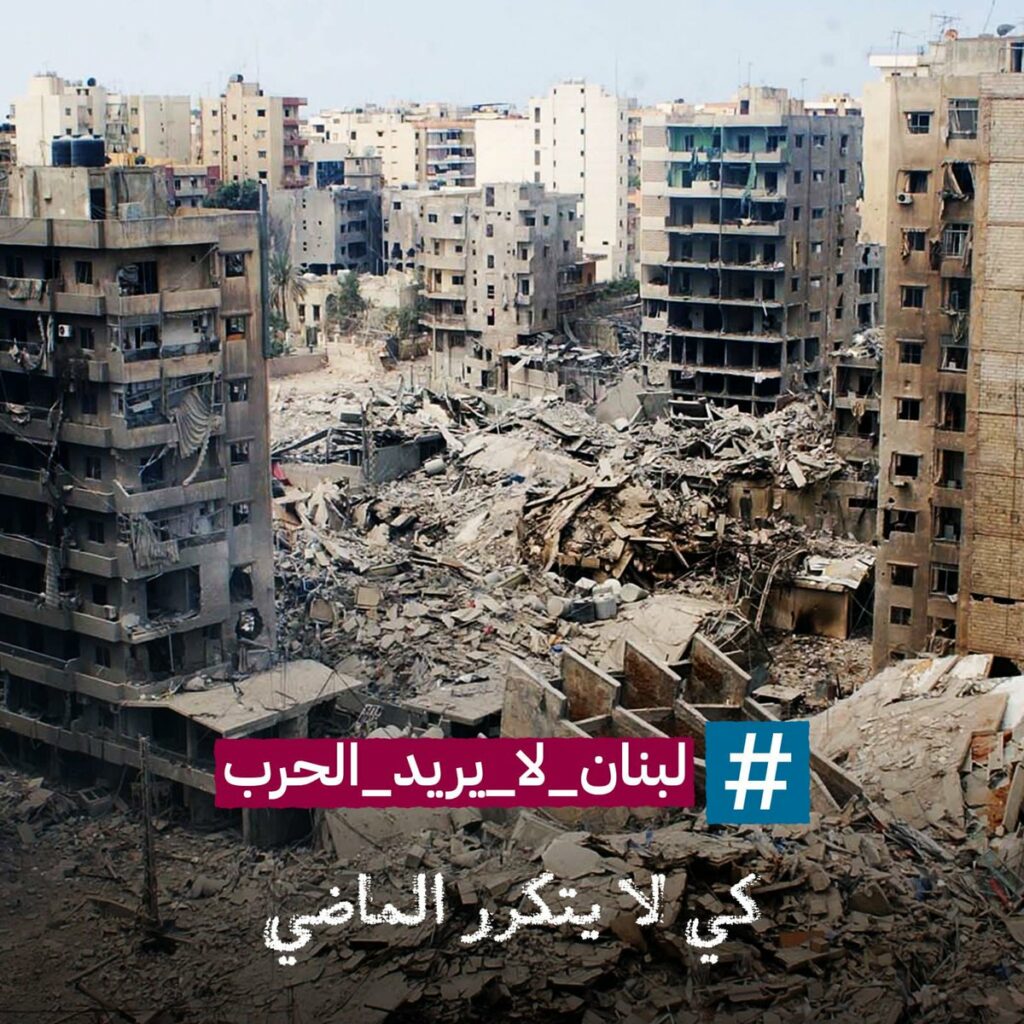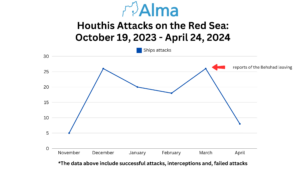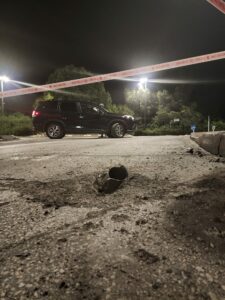Written by: Dvir Peri
While the Iranian leadership continues to threaten an escalation of war if Israel continues its operation in Gaza, Hezbollah has not acted as decisively as it could. Described as Supreme Leader Khamenei’s strongest army in the region, Hezbollah has been focusing on a limited number of infiltration attempts and primarily dozens of shootings or attempts to fire anti-tank and mortar weapons at surveillance cameras and antennas on the border fence and at communities along the border. So far, three incidences have been reported from the Syrian border. Attempts to fire anti-aircraft missiles at the IDF UAVs, which have a high level of success in removing Hezbollah’s anti-tank squads, were also futile. So far, Hezbollah has suffered roughly 50 casualties, many of them from Shiite villages in southern Lebanon that support Hezbollah’s extensive move.
After the American declaration of aid to Israel, Hezbollah’s mouthpieces declared that “the resistance axis is ready for confrontation until the final victory and complete liberation” – warlike expressions known as part of the Iranian and Hezbollah campaign against Israel over the years.
Nonetheless, the entire resistance axis avoided activating with full force, or even close to it. To the escalation on the Lebanese border, there have been around 20 drone strikes against American positions in Syria and Iraq, as well as three attacks launched from the Red Sea region or Yemen, the second of which landed in Egyptian territory.
Beyond the influence of Iran, the United States, and Israel on Hezbollah, one must look deeply into the influence of Lebanese society and politics on the question of Hezbollah joining the war.
On the political level: Although Prime Minister Mikati has made it clear that Lebanon is not interested in war, Parliament Speaker Nabih Berri clarified this week in response to Iranian President Raisi’s remarks that Israel has crossed a red line. He added that he supported any Hezbollah action if Israel’s aggression in Gaza continued, and announced a meeting of Lebanese parliamentary committees on October 31 to discuss “national emergency plans to increase preparedness to deal with the consequences of Israeli aggression.”
On a social level, it is clear that the vast majority of Lebanese society supports and hopes for victory over Israel in some form or another, as well as the “liberation of Palestine,” but in the context of Lebanon’s involvement status in the war, Lebanese society is so diverse and divided in two, depending on the Lebanese citizen’s living area, religion, and political opinion.
The same is true on social media: on the one hand, there is a pro-Hezbollah group that is simply waiting for its party’s big moment. In recent months, the same group launched “The Resistance – Lebanon Shield” campaign, and is now urging the organization’s leaders and supporters to lead Lebanon and the entire resistance axis to triumph over Israel, regardless of the consequences for their home and homeland.

This group’s online influencers proudly post the party’s statements and victories in the combat against Israel since the first day of the war, and solely urge for border escalation. Hezbollah’s social media mouthpieces also spread propaganda videos recording the activities of the organization’s military groups on the border, as well as threatening videos in Hebrew intended at intimidating Israeli people.
Although Hezbollah has gained power in Lebanon for more than 40 years and controls political, economic, and security apparatuses, the influencers on this side of the barricade do not seem to take into account what Hezbollah has to lose from a war with Israel – the destruction of Hezbollah’s control mechanisms in Lebanon.
It is important to note that within this group, voices are already being heard criticizing the Hamas leadership, which sits in cozy hotels in the Persian Gulf and expects the Lebanese to sacrifice themselves. Sunni Hamas and Shiite Hezbollah are not natural allies. Their cooperation is, first and foremost, a combination of interests against Israel and the result of an Iranian effort to harness the Palestinian organizations to the Iranian agenda. These voices from within Hezbollah reflect this.
Contrary to them, on the other side, there is the “anti-Hezbollah” group, which opposes Iranian influence on their homeland on a daily basis and criticizes Nasrallah and his party and even mocks threats that have not been carried out since the beginning of the war. Not surprisingly, these influencers, mostly from the capital city of Beirut and Christian provinces and villages, do support the Palestinian struggle against Israel, but claim that it is not their war while understanding the consequences of war on Lebanon in these days of economic and political crisis in Lebanon. The economic crisis even before the war is one of the worst in history along with the political crisis in which Lebanon does not actually have a president.
In addition, the group that opposes Hezbollah blames it for the presidential crisis, since its representatives in parliament thwart the elections every round.
Another argument is that Lebanon, after a war with Israel, may not be able to rise from the pit it will enter and from the ruins of destruction that will be “from the south to Beirut.” And there have already been unequivocal statements on the social networks that unlike in 2006, This time, citizens of Beirut will not open their doors to Hezbollah supporters from the south if the war starts there.
The popular Lebanese reporter Tony Bouloss already stated that “most of the young people in Lebanon reject the possibility of war and repetition of the experience of the July 2006 war. This time, war brings Lebanon to the stone age, and the towns and villages will be left ruined and their residents will become homeless”.

The current war exacerbates the rift that has existed in Lebanese society for many years. In addition to this expression on social media, there are reports of opposition by Christian elements in the south of the country to Hezbollah’s war effort, including concern about their use as human shields.
Lebanese reporter Rami Naim wrote: “Is Hezbollah trying to destroy the homes of Christians and Sunnis because it is a well-known fact that Israel bombs only the sources of (rocket) fire?”At the same time, it was reported that some 20,000 Lebanese had already left their homes in southern Lebanon in fear of the approaching war.
It is unclear to what extent this criticism in Lebanon will influence the decision of Hezbollah or its Iranian master to wage war against Israel. It may explain its attempt to drag Israel into war rather than initiate it. These attempts began even before the Hamas invasion and accompanied the entire past year. In any case, it is evident to all that in any conflict scenario, Hezbollah will put all Lebanese, sympathizers and opponents alike, in danger and exploit them as human shields.





